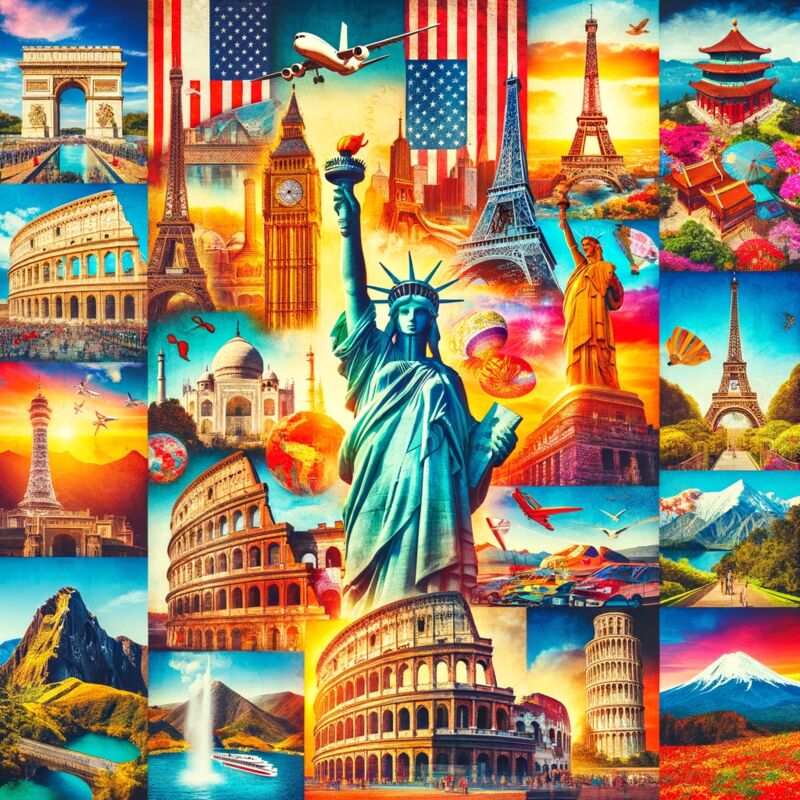Essential Travel Guide to Germany
Overview of Germany
Germany, located in the heart of Europe, is a country rich with history, culture, and natural beauty. Known for its precision engineering and high-quality products, it is also home to picturesque landscapes, fairy-tale castles, and a robust beer culture. Travelers to Germany can explore vibrant cities, historic towns, and tranquil countryside.
Travel Documentation and Entry Requirements
Passport and Visas: Ensure your passport is valid for at least six months beyond your planned date of departure from Germany. Most tourists from outside the EU will need a visa, so check with the German Foreign Office for the latest entry requirements.
Customs Regulations: Familiarize yourself with Germany's customs regulations, especially if you're bringing medication or other restricted items. Information is available on the official customs website.
Getting Around
Public Transportation
Germany offers an extensive and efficient public transport network, including buses, trams, U-Bahn (subway), and S-Bahn (suburban trains). Major cities also have well-connected Hauptbahnhof (central train stations) that facilitate long-distance travel.
Renting a Car
If you prefer flexibility, renting a car can be an excellent option. Remember that Germany has strict driving rules, and the famous Autobahn does have speed limits in many areas.
Accommodation
From luxury hotels to budget-friendly hostels, Germany accommodates all travelers. Consider booking in advance, especially during peak tourist seasons or major events.
Language and Communication
The official language is German. English is widely spoken, especially in tourist areas, but it's always appreciated if you learn a few basic German phrases.
Money Matters
The currency in Germany is the Euro (€). Credit cards are widely accepted, but having cash is essential, especially in smaller towns or when dining at local establishments.
Food and Dining
German cuisine is hearty and diverse, with each region having its specialties. Don't miss out on trying the local beer and traditional dishes like pretzels, sausages, and schnitzel.
Electricity and Connectivity
Germany uses Type F power sockets, and the standard voltage is 230V. Ensure your devices are compatible or carry a power adapter. Wi-Fi is commonly available in public areas and accommodations.
Health and Safety
Germany is a safe country with a high standard of healthcare. Travel insurance is recommended. Also, dial 112 for emergency services if needed.
Shopping and VAT Refund
Shopping in Germany offers everything from high fashion to flea markets. Non-EU residents may be eligible for a VAT refund on purchases above a certain amount.
Useful Tips
- Always carry some form of identification with you.
- Respect local customs and rules, such as quiet hours typically from 10 pm to 7 am.
- Recycling is taken seriously in Germany; follow the disposal and recycling rules.
- Tipping is customary, usually rounding up the bill or adding 5-10%.

Popular Destinations and Attractions
- Berlin's Brandenburg Gate and the historical remnants of the Berlin Wall.
- The beautiful Black Forest and its surrounding storybook villages.
- Oktoberfest in Munich, the world's largest beer festival.
- The Romantic Road, a scenic route connecting picturesque towns and castles.
- Cologne Cathedral, a stunning example of Gothic architecture.
Cultural Etiquette
Germans value punctuality, so always try to be on time. When greeting, a firm handshake is common. Privacy is respected, so avoid loud and intrusive behavior in public spaces.







